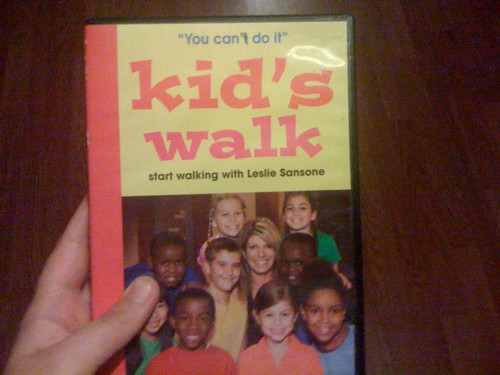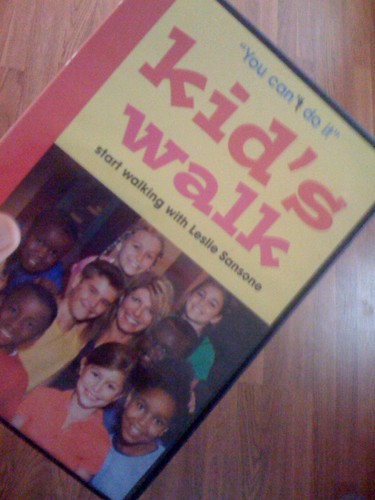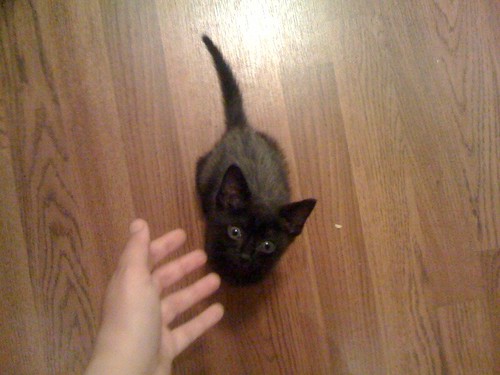This summer is full of trendy, self-improving things in my tiny social circle*:
Infinite Jest (My pretense is showing: I've already read most of it and will read it later at my own damn pace, minus book marks - mostly cuz my cat broke my printer - once I'm done reading
Anna Karenina [What? no online book club of hipsters reading that with me? I'll solider on somehow]),
camping trips with indie rock bands, and best of all, going vegetarian. I like to think I'm just a trendsetter.
Because my ego is fragile and I have so little else going for me, I would like to point out that I have been vegetarian since I was 18. Not that it's a contest. But, I feel I have a little bit of cred to recommend the following to my newly cruelty-free friends and anyone else is interest. Those of you making this change, I am so proud of you!
Confession: I have a complicated relationship with my own vegetarianism. I see it as a lifestyle, not a diet; an ethos, not a trendy choice; a continuum and a belief system, not a bumper sticker. I kind of hate talking about it. I hate having The Vegetarian Conversation with mouth-breathers. (This is what they say; i usually just seethe: "Are you AGAINST cruelty to animals? So what do you like eat? Don't you think God put animals on earth for us to kill? Don't you think PLANTS have feelings? haw haw haw. What about all the animals that die when you harvest vegetables? MMM MEAT AREN'T YOU HUNGRY GODDAMN LIBERAL PINKO etc.") I hate arguing in general. So please respect that, and read the following recommendations, and be patient because some of them are kind of hurr-durr:
1. Reducing meat consumption. Even if you feel you need to consume flesh to justify your humanity / masculinity / American-ness, the most compelling argument against meat consumption is environmental. I was an environmentalist before it was trendy. True story: I got in trouble in 3rd grade for petitioning my school principal to ask him to start a recycling program. Yes, really, and it was all my own idea. So I feel my investment in this issue is a little deeper than the people who just saw the Al Gore movie a few years ago and jumped on the bandwagon; I'm not knocking their commitment and I'd rather have trendy commitment based on cynical green product marketing (someday I'll post about Green Products and the purchase of a "green" lifestyle and it affinities to church indulgences; it'll be a 95 theses kind of post) than no commitment, but this has been something that has literally dominated my entire life. Maybe that's an assy, alienating thing to say. But anyway. It disappoints me when vegetarian activists mumble something incoherent about mollusks having the right to vote or all life being preshus or something. The facts are, factory farming produces more carbon emissions than cars. 90% of sea fish are gone from overfishing.
The horrifying, bloated American lifestyle is unsustainable and unnatural. If you think it's impossible for you to cut out dead flesh, then just cut down. Until 20 years or so ago, it was unheard of to consume the portions and quantity of meat and dairy that Americans consume. If you want your children to have any kind of world at all to live in, or any children to have any kind of world at all to live in, stop eating so many dead things. Period. I am truly not interested in your biased rebuttals. There is absolutely no justification or reason for the bloated, inexcusable, disgusting American lifestyle we exploit and it's time for us ALL to cut back, and not just because suddenly, many people are as poor as I've always been.
2. Check out some interesting ethnic, traditionally vegetarian cuisines. It will make you a more interesting and worldly person, and help you support local businesses. My one renegade friend who went on this camping trip and didn't go veg (but, interestingly enough, did not exploit animals by petting them unsolicited - I salute you, sir!) mentioned something interesting about getting bored by meatless choices. Therefore, I'd encourage my recently vegetarian friends to try new things to reduce the chances of recidivism. Sure, you can eat PB&J (totally vegan, right?) every day, but unless you live where I do, there are lots of options for new things to try. Indian, Chinese, Japanese, and Middle Eastern restaurants usually have many vegetarian options, and if you're not like me, and you have a real job, those are usually good places to go for lunch. So I hear.
3. This is the really obvious one. Try cookbooks or new recipes. When I first became a vegetarian in college, I got
The Starving Students' Vegetarian Cookbook (at least I think it was that one. What I liked about it was that it assumed no fancy materials, ingredients, skills, or cookware, which was good because I had no actual kitchen. Everything was easy to make and after a while, fairly personalizable. Granted, I am a terrible cook. Kitchens burst into flames at the mere sight of me, which is a super power that would probably be a lot more profitable than this blog if I could just harness it & then lease it to the government. Anyway, it wasn't condescending like, "Here, kiddy, help in the kitchen. Do you know what a vegetable is? Now color!" but it wasn't snobby, either. Even if you're not a student, it's a good place to start. Seriously. Otherwise, try the Internet! I know! Imagine that, telling a person reading a blog to look on the Internet! For information! What am I thinking! That Internet thing has exploded recently; there are lots of sites with recipes that you can use to make food. You can use food to be less hungry. Whoa. This blog is full of life-changing revelations. Note the tip jar, people.
All vegan recipesAll Recipes.com. I have helpfully linked to the Vegetarian section.4. Stick together. It really helped me in college that most of my friends were vegetarians (When I was in high school, I tried to go vegetarian but went back after a few months partly because I didn't know anyone else who was vegetarian; I also got really sick - not related to vegetarianism though). In my tiny liberal arts college paradise, vegetarianism was just the socially acceptable thing to do. We cooked together in the common kitchen. We went grocery shopping and scanned ingredient lists together. We became waiter's worst nightmares together (ouch, that sentence parses painfully). I'm not saying to abandon your carnivorous friends, or evangelize them, but I think it's a lot easier to make this change if you do it with someone, or hang out with someone who has been in this for a while. Two minds are better than one. It's easier to collaborate and be creative and notice things when you have two minds and two sets of eyes. This may seem obvious, but YOU try reading all the ingredients in Rice A Roni on a Saturday morning in a busy grocery store.
. 5. Be a self-advocate. I have problems with this myself. It's always awkward when some loud dude (it's always a dude. Sorry) engages me in "conversation" and yells at me and tries to make me feel like shit for my sincerely held beliefs or thinks that he can convince me that vegetables have feelings or some nonsense. I hate arguing. I truly do. I also feel bad going to restaurants and making extra work for people by asking if there's chicken stock in soup, if there's gelatin in desserts, if there's rennet in cheese. But if everyone self-advocates unapologetically, maybe society will wake up and realize that just as it's totally normal & acceptable to provide tons of information for the 1 person in 10,000 who will have an allergic reaction, they should stop rolling their eyes and being judgmental towards the hundreds more who adopt a lifestyle of lesser cruelty and realize that maybe it's important to know what is in the food they're selling or even putting in their body.
I know there's tons of cruelty & exploitation inherent in simply living in America or any other first-world country. I am racked with guilt on a daily basis because I live a stupid, pointless, elitist intellectual life while people are dying and I just sit here and pontificate while people die preventable deaths, and I rethink my choices constantly. I don't claim to know the answers or even the questions. I don't claim this cleanses me of original guilt. But it makes me feel better. That's all I can do, I guess.
Coming up some other time when I feel like it: Parallels between cruelty-free lifestyles and evangelical Christianity.
If it's even still necessary.
My real, succinct recommendation today is
be kind, loving, and reduce how much you hurt all living things.. You'd be surprised just how necessary it is that we remind each other of this.
*I'm using this term lightly, because I currently live in academic exile 700 miles away from everyone I consider a close friend, and I only see them a few times a year anyway. It's more of a retinal image than a circle, a concept. The circle is not unbroken.








